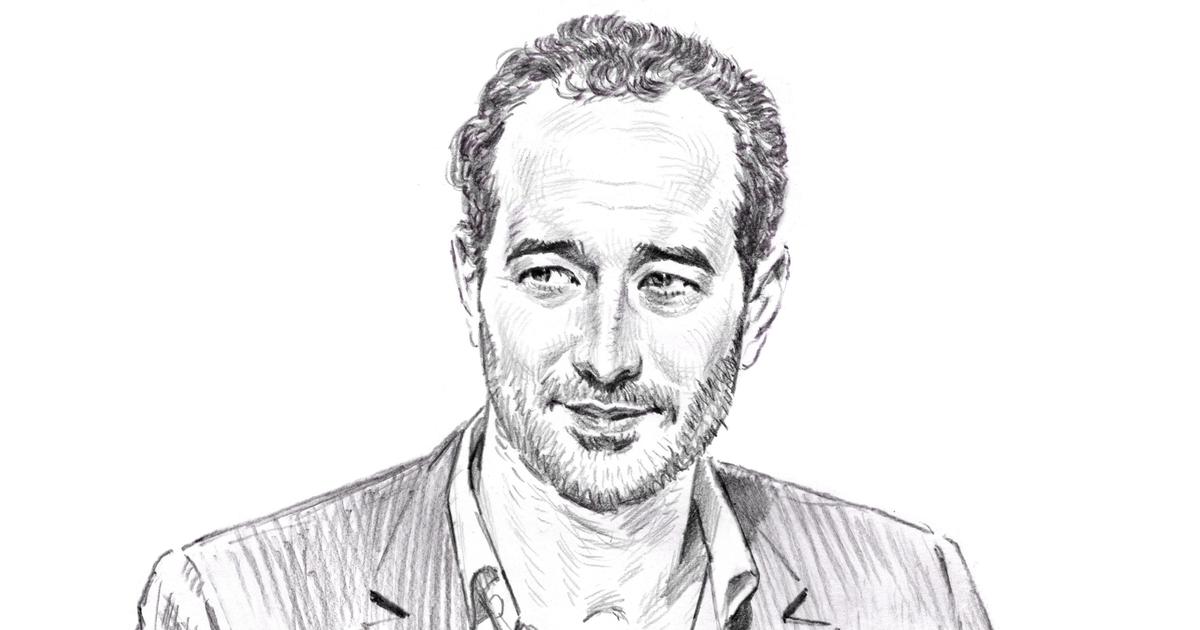Enlarge image
A police officer in Fairview, New Jersey, stands in front of the building where Rushdie was assassinated
Photo:
Eduardo Munoz / REUTERS
On February 14, 1989, shortly before the Red Army left Afghanistan, Ayatollah Khomeini issued a fatwa condemning Salman Rushdie to death for allegedly insulting the Prophet with his novel The Satanic Verses.
The supreme leader of the Islamic Republic of Iran chose this date to distract the Islamic world from the expected victory of his Sunni rivals in Afghanistan.
Backed by the CIA, funded by Saudi Arabia and the petromonarchies, they were well on their way to ousting from "Islamic soil" the forces of communist atheism that had invaded Islamic Afghanistan a decade earlier.
The fatwa sparked a worldwide scandal - an Iranian ayatollah sentenced a British citizen to death on British soil, something unprecedented at the time.
It had the desired effect: Khomeini had pulled the rug out from under Sunni Islamism.
Its representatives had hoped that the Soviet defeat would serve as the heralds and heroes of the "humiliated and insulted" Muslims around the world.
The Soviet defeat was to have crucial geopolitical consequences, leading to the fall of the Berlin Wall and the death of Communism on November 9, 1989.
But she was hardly noticed by many at that moment.
The ayatollah had won the media war.
But the rivalry between the Shias and the Sunnis persisted.
And so the then al-Qaeda deputy Aiman al-Zawahiri (who was killed by an American missile in Kabul at the end of July, where the Taliban took power again after the US withdrawal a year ago) propagated in his manifesto »Knights under the Banner of the Prophet” (1996) had an idea.
A major strike by Sunni jihadism is needed.
That was precisely the purpose of the September 11, 2001 attacks. By sowing death and ruin in the West, in Washington and New York, al-Qaeda wanted to monopolize attention at the expense of its rivals in Tehran.
A girl in Lebanon holds a placard calling for the killing of Rushdie in 1989
Photo: REUTERS
However, the fatwa continued its devastating effect even after Khomeini's death in June of the same year.
It was even to be taken up and continued by the Sunni rivals: Danish caricaturists who published drawings of the Prophet that they felt were blasphemous in a daily newspaper in September 2005 were sentenced to death;
these, in turn, were later picked up by the editors of the magazine »Charlie Hebdo«, where the Kouachi brothers carried out a massacre on January 7, 2015.
This is how the so-called "Islamic State" (IS) was born in Europe.
From then on, thousands of young French Muslims emigrated towards the Levant.
This shows how central the "defense of the honor of the Prophet" is for all Islamist movements that try to mobilize their fellow believers in a universal jihad against the Judeo-Christian - or in their parlance the "Zionist-crusader" - West.
The latest developments were seen in France in September 2020, when the cartoons at the beginning of the trial of the murders of the Charlie Hebdo editors were republished.
There were three new attacks on people's life and limb: In the first, the Pakistani Zaheer Mahmoud armed with a knife attacked two people in front of the former headquarters of "Charlie Hebdo" in Paris.
He was obviously influenced by the huge demonstrations in his home country demanding the beheading of the "blasphemers".
In the second, Chechen Abdullah Anzorov beheaded teacher Samuel Paty in front of his high school in the Yvelines department after he had been met with hate online.
A place in paradise
At that time, the author of these lines advocated calling these attacks "mood jihadism" - one could also speak of "anger entrepreneurs" (like Professor Bernard Rougier): They declare people to be targets in social networks without it being an organization or a network needs.
They don't need an authority that issues orders like al-Qaeda and IS.
They are convinced that with their actions they are redeeming the community of believers, the "Umma", promoting the Islamization of the universe and securing a place in paradise for themselves and their families.
The goal of "mood jihadism" is the extermination of alleged blasphemers.
It is particularly easy in Sunni religion to fall under its spell.
For he knows no hierarchical or sacramental clergy with infallibility - every believer can be assured of the truthfulness of his faith, no matter how erroneous it may be.
In contrast, the Shia have strictly hierarchical religious structures that are characterized by obedience to the relevant Grand Ayatollahs.
Not everyone agrees among themselves.
Khomeini's teachings and those of his successor, current Iranian leader Ali Khamenei, also inspire Hezbollah, which is dominant in the Lebanese Shia.
Hadi Matar, the suspect in the stabbing of Salman Rushdie, is said to come from this community.
In Iraq, on the other hand, Ayatollah Ali al-Sistani strictly rejects such a political instrumentalization of the faith.
"Fired like a bullet that won't rest until it hits its target"
The ability of the current Iranian rulers to organize their supporters and to mobilize their state apparatus for this purpose remains very strong.
The reform-oriented presidents Mohammad Khatami (1997-2005) and Hassan Rouhani (2013-2021), who temporarily held power in Tehran, have made it clear in various ways that the fatwa of February 14, 1989 is no longer up to date.
However, you yourself have disappeared from the political scene and have been replaced by former prosecutor Ebrahim Raisi, who has sent numerous opposition figures to their deaths.
The real power still rests with Khamenei, for whom the fatwa against Salman Rushdie is "like a bullet fired that does not rest until it hits its target."
The commentaries in the Tehran press closest to his line hailed the attacker's "heroic" act.
Rushdie, who is Muslim by birth, is in this reading an apostate from Islam who deserves the death penalty.
Is Shiite jihadism breaking away from the Iranian government?
However, the attempted assassination of the Indo-British writer, who was about to give a lecture on freedom of expression and America as a haven for exiled artists, seems paradoxical in terms of the interests of the Iranian regime.
Tehran is particularly interested in reaching the conclusion of the nuclear deal at the UN General Assembly in September, at which President Raisi announced his participation.
It is difficult to imagine that such a criminal act with enormous symbolic importance will not have any impact on the conclusion of the negotiations.
The assassination will undoubtedly make Iran's reintegration into the international community more difficult.
There may be voices in the Islamic world who consider it legitimate to execute a "blasphemer" - in contrast to Zawahiri in Kabul or the Iranian general Qasem Soleimani, the head of the elite unit of the Iranian Revolutionary Guard, who on January 3, 2020 in Baghdad was liquidated by the US Army.
But neither in Europe nor in the US will such an argument meet with approval.
Especially not for an American president whose party has to face a delicate election date in November.
Sunni jihadism was financed by the petromonarchies of the Arabian Peninsula, armed and instrumentalized by the CIA during the Afghan war of the 1980s – but it eventually eluded those who fomented it: its agents carried out bloody attacks in Saudi Arabia and then the 9/11 massacre in New York and Washington.
With the attack on Rushdie, has Shiite jihadism also said goodbye to the state logic of its Iranian inventors?
Initial investigations showed that the suspect's Facebook page — which was accessible hours after Rushdie's assassination — praised the Iranian Revolutionary Guards, General Soleimani and Hezbollah.
Was this 24-year-old man, born in the US nine years after the fatwa, bathed in radical Shia 'atmospheric jihadism'?
In which the social networks, contaminated by a phenomenon similar to that in the Sunni milieu, were more important than strictly following the instructions of the Iranian leadership?
The judicial process against the assassin will provide answers in its time.
But we can already see that the jihadist phenomenon is multifaceted, ubiquitous and resilient, even on the soil of the democratic countries of the West.
This recurring threat calls for heightened vigilance against threats and their ideologies that seek to divide our societies.
They have led to a long line of acts of violence and crime.
And its origin and symbol is the February 14, 1989 fatwa against Salman Rushdie.
The idea of international jihadism began with the radical political Shiism of a Khomeini, it mutated into extreme Sunni movements such as al-Qaeda and later IS.
And after these have been weakened militarily and politically, it has now returned to its original environment.








